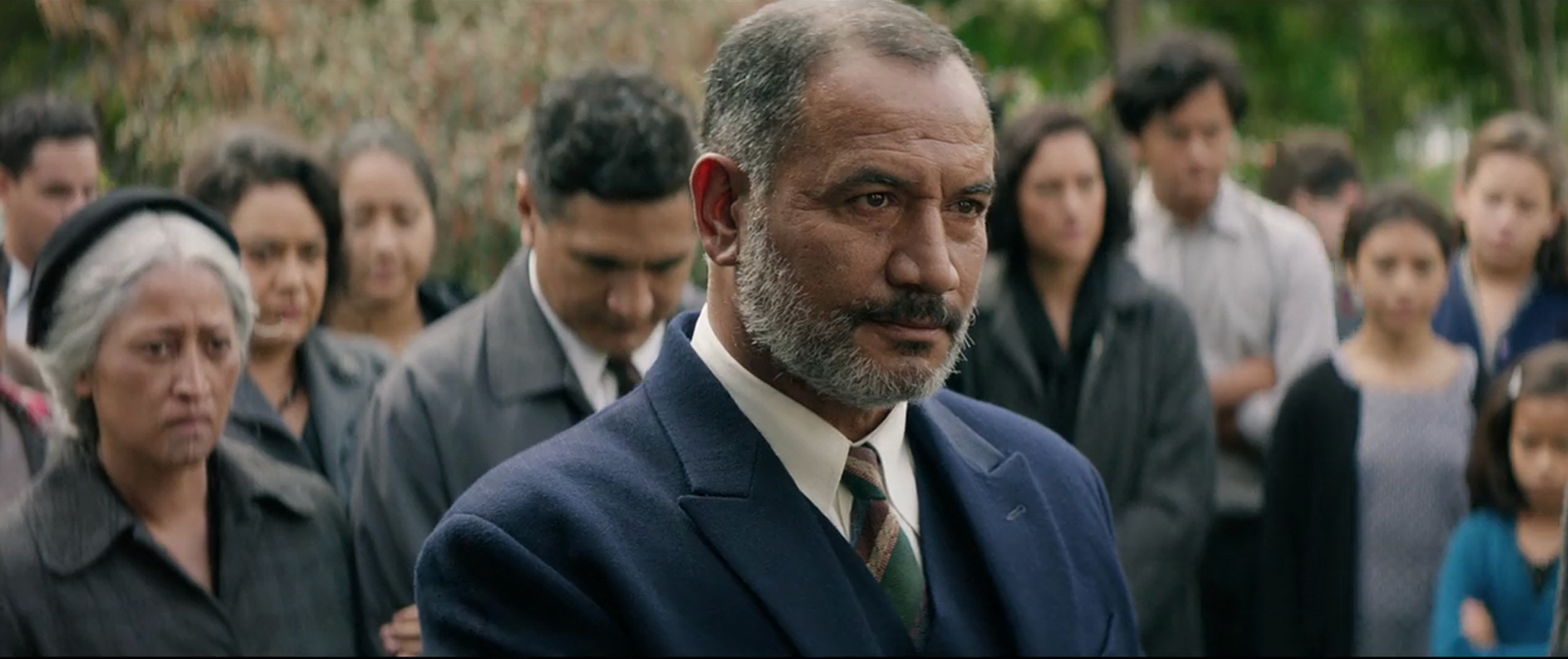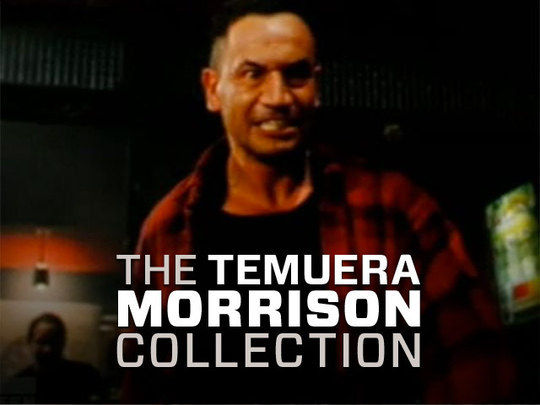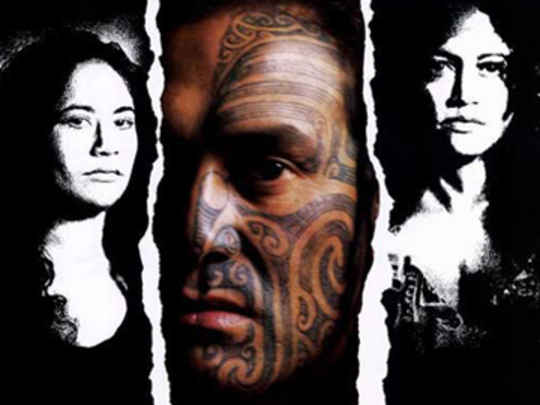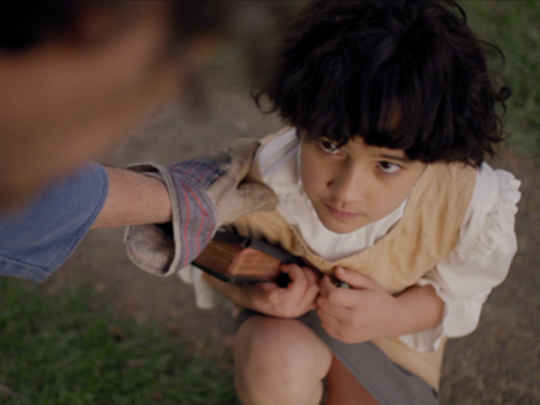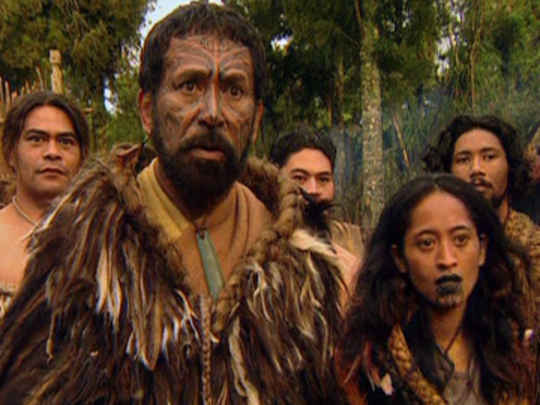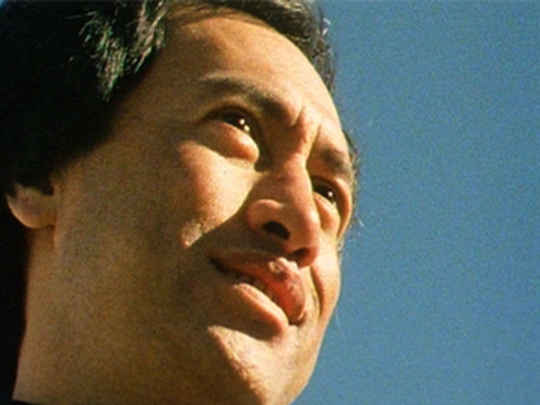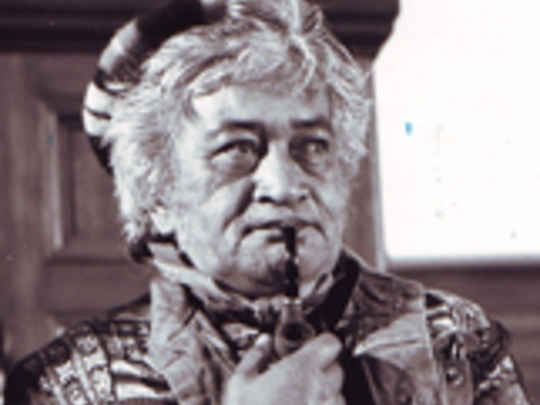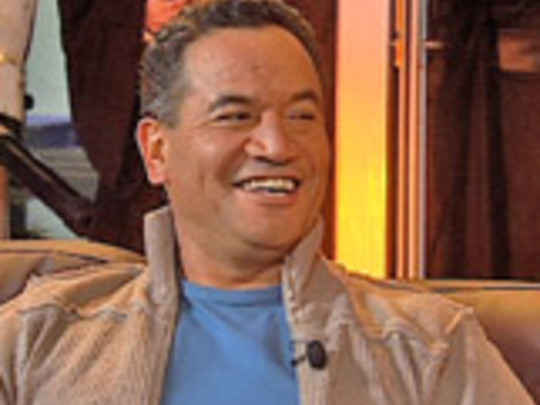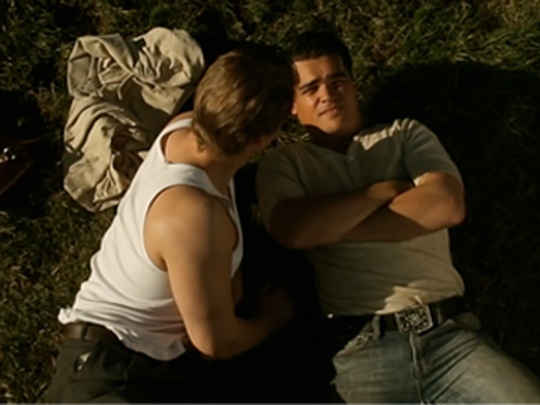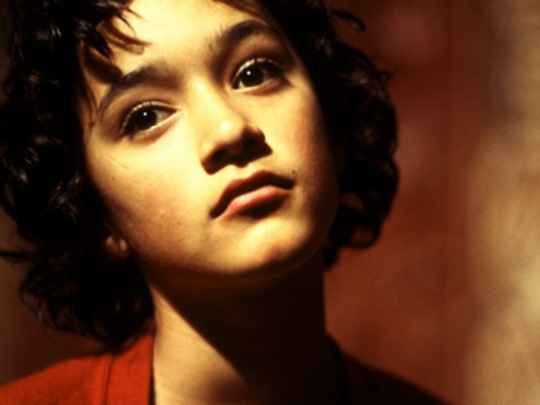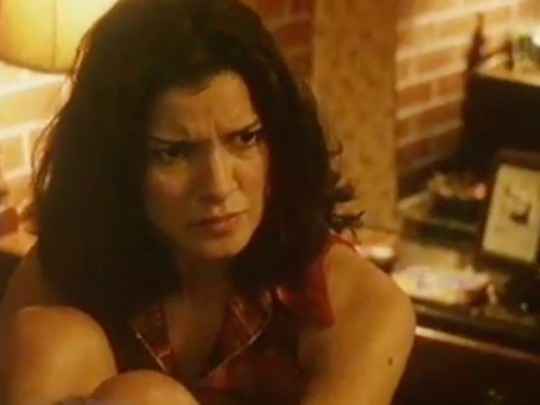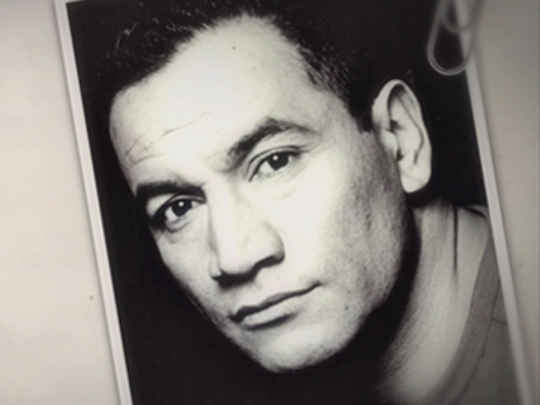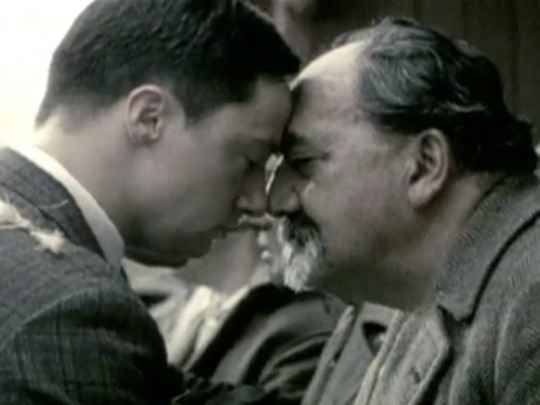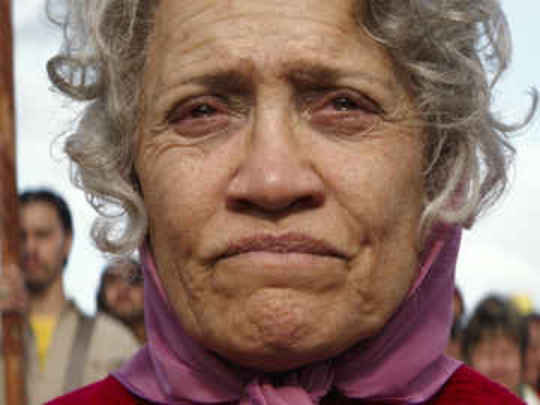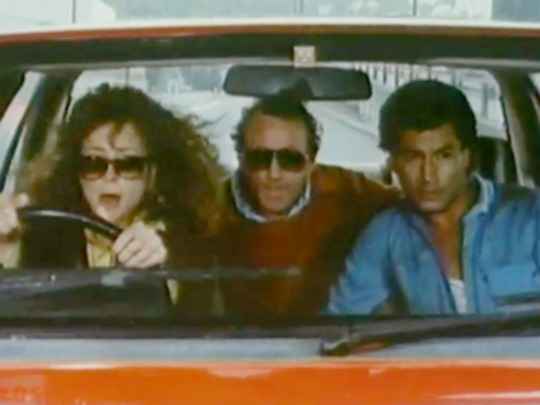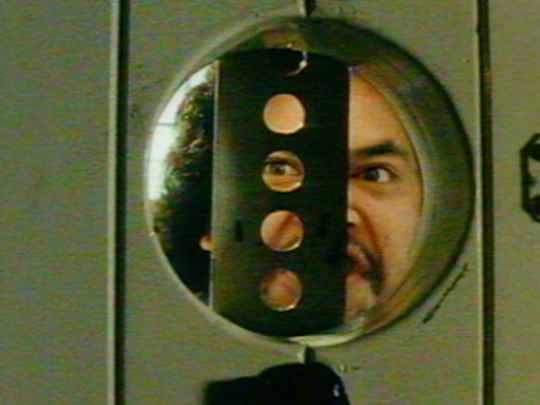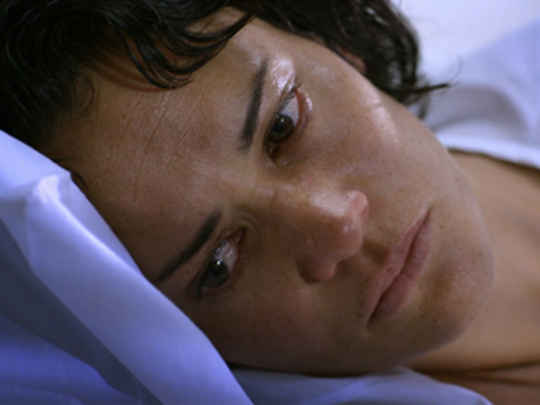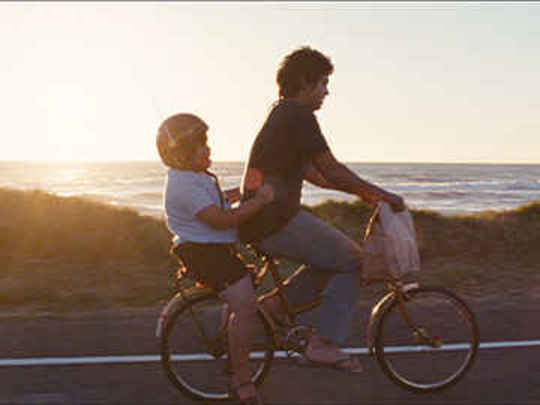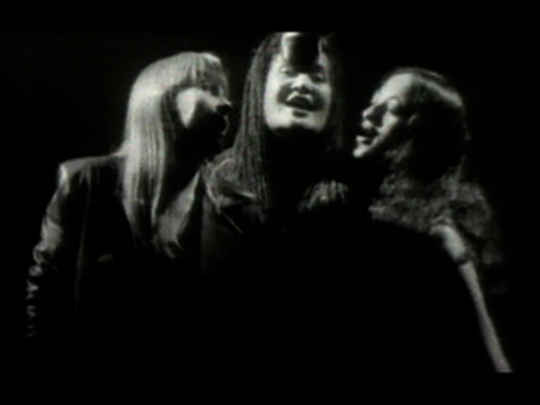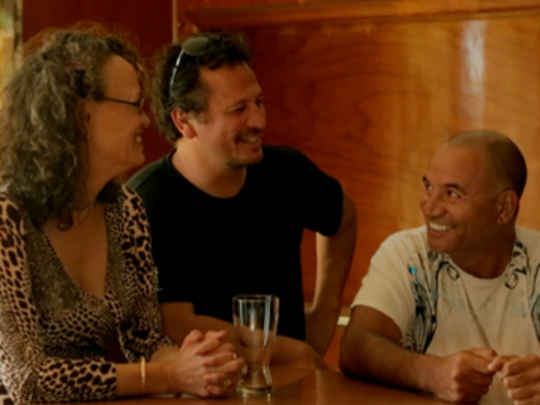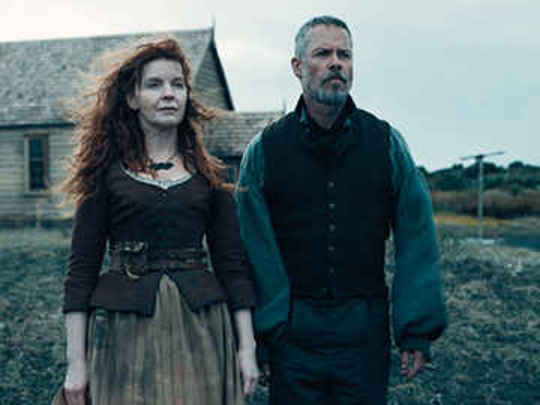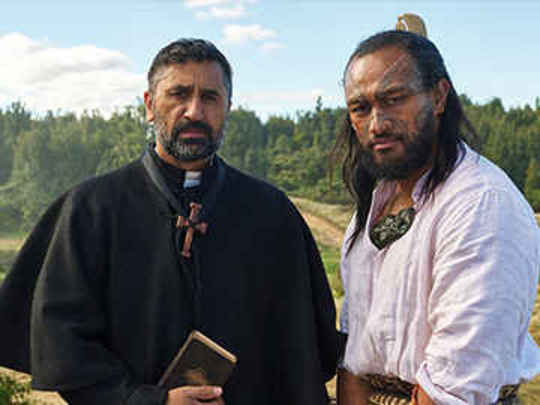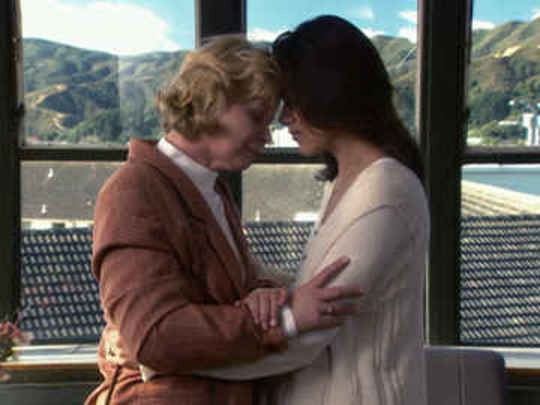The trailer for this feature film.
An excerpt from this feature film
Interview with actor Temuera Morrison
Interview with actor Nancy Brunning.
Interview with actor Akuhata Keefe.
Interview with director Lee Tamahori.
Interview with producer Robin Scholes.
Interview with novelist Witi Ihimaera.
Behind the Scenes of Mahana
Closing Credits
Mahana
Film (Trailer, Excerpts, and Extras) – 2016
It's very rare for people to return, let alone to a film with a much lower budget than anything he’s done, since Warriors. We have Witi [Ihimaera] to thank for this. His book, Bulibasha, really appealed to Lee because it’s about the people he knows and loves and wants to see portrayed on film.– Producer Robin Scholes on director Lee Tamahori, in a 27 May 2015 press release
... this well-crafted (and wisely retitled) 1960s family saga marks a return to Māori roots for Once Were Warriors helmer Lee Tamahori . . . What better way to regroup than by tackling such a sincere homage to his homeland, which blends incredible cultural specificity with Tamahori’s internationally accessible storytelling style?– Peter Debruge, reviewing Mahana in Variety, 13 February 2016
I remember when we all started out here — clearing the land, grazing. It was hard; hard making a living. Tough for Pākehā and Māori alike.– Tamihana Mahana (Temuera Morrison) speaks at Mr Collins' funeral, in the excerpt
What I wanted to do, in terms of the time period, was to reflect on what New Zealand was like, rural Māori society, in the 1950s and 1960s, prior to the time that Māori came to the cities. So in many ways I look upon Mahana as being a precursor film, actually, to Lee's Once Were Warriors. Mahana shows the generation before.– Witi Ihimaera, author of Bulibasha - King of the Gypsies, the book Mahana is based on, in his interview
Pretty much what attracted me to wanting to audition for this piece was that I knew it wasn't just going to be a story about a dominant male character; that like all of Witi's stories, the female element is usually the strongest element. It just doesn't appear that way at the beginning. It kind of creeps in.– Actor Nancy Brunning, who plays Ramona Mahana, in her interview
[Lee Tamahori] shows a lightness of touch and a connection with Aotearoa which does justice to Ihimaera's tale and beautifully showcases part of our nation's history.– Sarah Watt in a four star Stuff review, 28 February 2015
Keep it quite simple and still . . . Still was a big word for me. Being quite still to give him a little bit more sense of power...not ranting and raving like I did in some other movies. But this was a little bit different; a little bit Clint Eastwood, you know, in those cowboy movies . . .– Temura Morrison on how he played Tamihana Mahana, in his interview
Tamihana is an extremely powerful, much revered man of his community, and Simeon is a little upstart: a cheeky kid who keeps on questing his grandfather.– Producer Robin Scholes on two of the key characters in the film, in her interview
You're late . . . if you were a minute late for heaven, do you think God would still let you in?– Tamihana Mahana (Temuera Morrison) to his family, in the excerpt
...200 individuals . . .put in funding via the Snowball Effect equity crowdfunding platform, a first for a New Zealand feature film.– Press release after the completion of filming, 27 May 2015
I reckon that it's the women in these families where the heart of these stories lie. The men's stories are always overt, and out in the open. They're external, you see them for what they are. The women's are always internal. They have to cover things up, hide things, suppress their emotions, suppress their feelings...– Director Lee Tamahori in his interview clip
Make no mistake, this film is half my nostalgic youth and half of Witi's hard-bitten, quite acerbic storytelling. I always wanted it to be a kind of loving postcard to a period that I knew very well, and I'm glad someone else wrote it in that period, because I was able to fill it with little pieces of my own life and childhood.– Director Lee Tamahori, at the start of his interview clip
